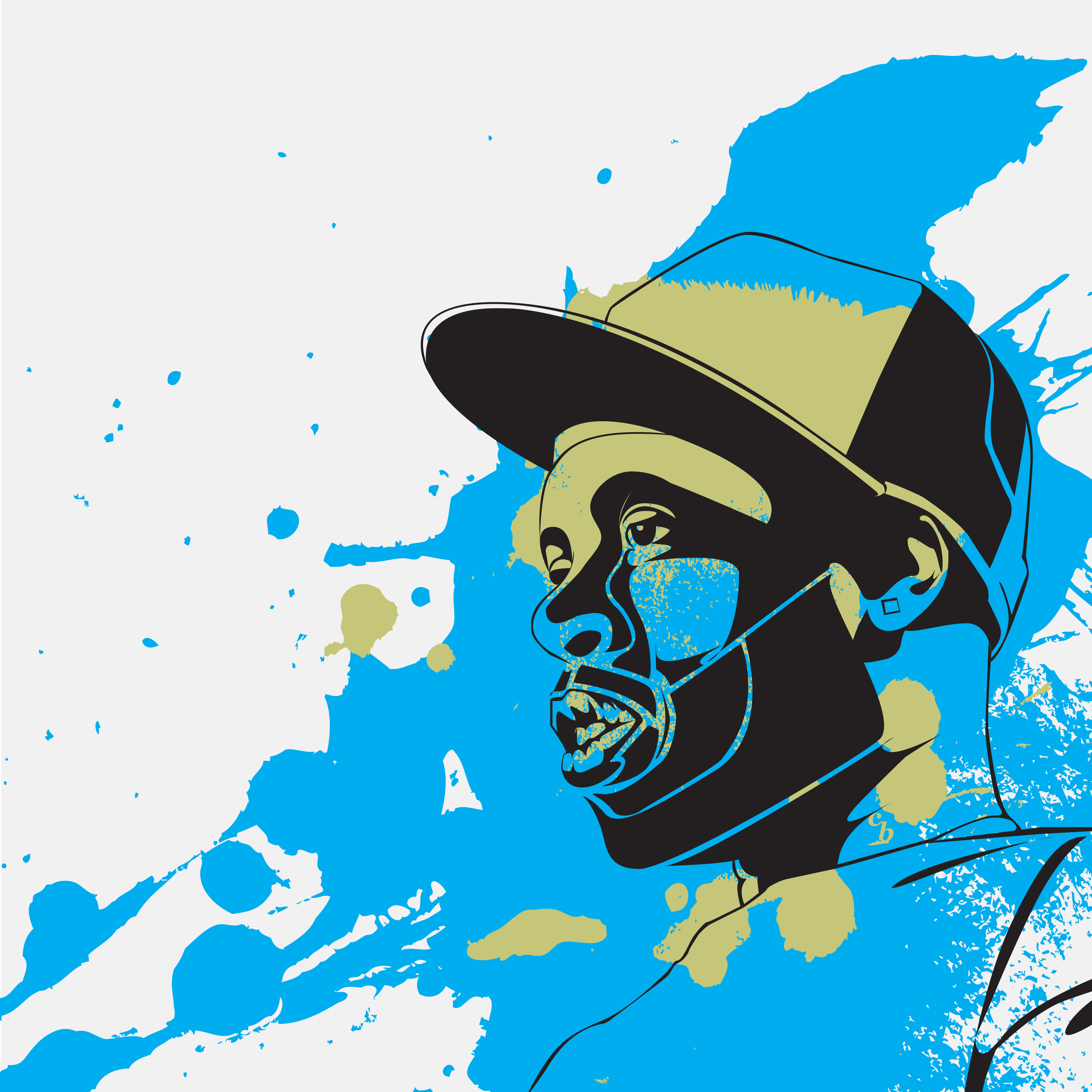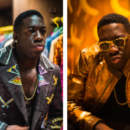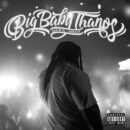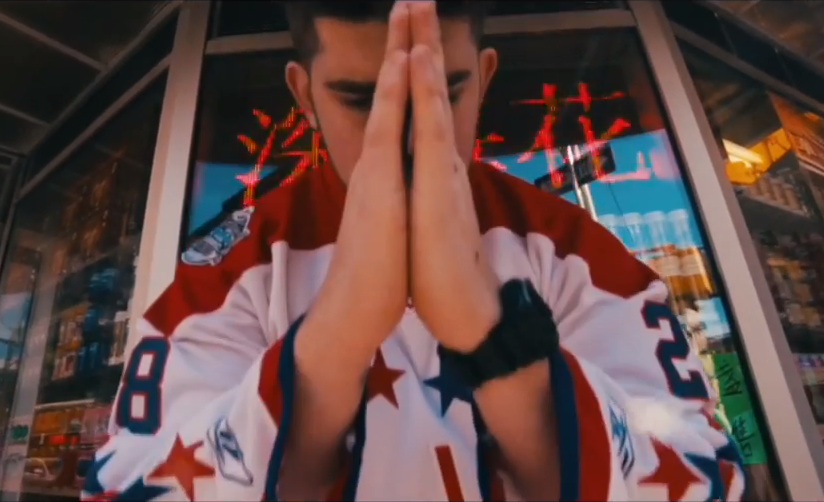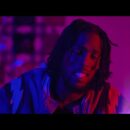When I met Mandella Eskia a few years ago, he went by Crimdella. Now he goes by his real name which he explains below. Ever since I met him, however, I have been impressed by not only his music but his story. There is a lot more about him than meets the eye. Learn more below in this exclusive interview.
Matt O (UHH): Are you an independent artist?
Mandella Eskia: Yes, I am.
What is the hardest part of managing your own career?
Mandella Eskia: Well, I do have some help. But I would say, for the most part, the hardest thing is just learning how to actually do business and be places and meet people while still focusing on creating great art, because sometimes it's hard to both at the same time. So that's the hardest part for me. Then, also, I think sometimes when you doing all your own business it's harder to say no when you need to say no. That's been the hardest thing actually, developing my no muscle because I can't just do everything just to do everything. I'll just stay in the same position forever.
So, outside of saying no, I guess it's not really the same, but what was the number one way that you found recently, whether it's online or in person, to get your music in front of new fans?
Mandella Eskia: I been doing a lot of So Far Sounds shows. That's been helpful. Then, also just purposely pushing myself to do shows or to do places that I've never done before, or do shows with groups that I've never done before, because their fans are not my fans. So, that gets me in front of new faces, and just being a little more open when somebody is like, "Yo, come to this event. So-and-so is going to be there." Just purposely going and pushing myself out of my comfort zone to do that. It also helps that the new music is so good that typically every time that I perform something somewhere, I leave with a healthy number of new fans.
Speaking of groups, you're in Black God Pantheon.
Mandella Eskia: Yes, I am.
Do you guys have anything planned as a group?
Mandella Eskia: We're more of an art collective and we were working on something, but I think right now, the focus is everybody doing solo joints and then hopefully we'll be able to do something after that. I would like to do something that's more of a compilation which focuses on us but also focuses on other dope artists in New York, because I feel like New York doesn't really get us. We have artists that are starting to get their shine, but there's so much more; so much more variety in New York that people don't get to see, so I would like to highlight that. But yeah, right now, I know Kita's working on something new. Precious Gorgeous is working on two projects. The Real Ishmael is working on stuff, too. So, that's really what it is right now, making sure that everybody gets their time to put their message out there. Because I think everybody is so different yet so similar that it will make for some really interesting art moving forward.
Why did you change your name from Crimdella to Mandella Eskia?
Mandella Eskia: Because it's my real name. With the whole Crimdella thing, it's a dope name and it was an interesting mashup as well, but it's just not real. There are other rappers that use that name. I was just like, "You know what? My father or my family gave me a really strong name and I been running from it for a long time." I think it's because it's so much power behind it's like, once you step into that name you got to go hard. So, I just made the decision that I'm going to go hard and I'm going to step into what was given to me. So that's what it was, really. Just my first name, my middle name, boom.
Do they stand for something in your family's history?
Mandella Eskia: Well, I was named after Nelson Mandela, obviously. So that's already power, in that name. My father actually was a big proponent in getting him to Harlem in the '90s. So I met him when I was about six years old. So, there's that. The interesting thing behind Eskia is, Eskia was supposed to be my first name. My Godmother, rest in peace, she gave me that. She wanted to give me that name. She was there when I was born. My father wasn't there when I was born. Because he was doing some business somewhere. I think maybe I was early or something like that. They were going to name me Eskia and I think it was after a young man that she met in Africa who was a artist or something like that, even though that name even has bigger attachments to it, as well. So that ended up being my middle name. So that's really what it is. I really connected more to personal family stories. And of course, Nelson Mandela is Nelson Mandela.
In a previous interview, you mentioned how your brothers were big influences in getting you into hip hop. Do you think Harlem has, I guess, influenced you as an artist, as well, in a different way?
Mandella Eskia: Yeah, very much so. I just think, growing up in Harlem has had an impact on me because Harlem is so focused on culture. It's so, culturally, just like an epicenter, just in a world. You don't really see many things like Harlem many places. So, coming from Harlem just means I have to be unique. I have to think about Harlem rappers. I said this in another piece I did, it's like, no Harlem rapper is the same. They're all different. Very, very unique. There is no one mold for Harlem. I think that having that has allowed me a little more leeway in how I come out as well. Then also, growing up in Harlem, there's certain things that I know of I'm connected to, because I grew up in Harlem that also have an influence on how I move and the type of stuff I speak on. You think about The Central Park Five case, and I don't know if you seen the Netflix show, When They See Us. My mother and my father are depicted in that show and that's because they were there standing by those men. I remember going to visit some of them, particularly Yusef, when I was a kid. So, just having that connection with that and then having a father who was so big in the Pan-Africanism, that experience just shaped me in a way where I know that I have to stand on certain things. Maybe that was long-winded but that's how.
Okay, let's get into the album, Bury Me In Gold Volume Two. Why did you decide to continue the series instead of picking a unique title name?
Mandella Eskia: Volume One was always just more of an experiment to see what the sound would be like, and it worked out really well. But I always knew that I wanted to do volumes of it. I probably won't do another volume for a couple of years. Because I think I have an idea of what I want to do next. But yeah, I just feel like it's a strong name, it means a lot to me, why not continue that movement? And so that's really what it was.
So, what does it mean to you?
Mandella Eskia: Really, Bury Me In Gold just means to go out, make your mark on the world, have some type of impact. Because gold is really more of a metaphor for impact and what you do, and making it count while you're here. Nipsey Hustle is a big example of Bury Me In Gold because he did so much that he is buried like a king. It doesn't need to be any gold on his casket for that. We just know that that is how he went out. So that's really what the metaphor is. While I'm here I want to make my mark.
Did mndcft produce all of the songs, again?
Mandella Eskia: Everything.
How has your working relationship changed over the years? Or has it not?
Mandella Eskia: I don't know. I think it's only changed in a way where we're actually friends. Not that we weren't friends before, but we've known each longer so we kind of know each other's personalities a little bit more. So we know when to lean in and fall back. I also just think, the more I get to know him the more I'm a little bit more comfortable with taking certain pointers and whatever, from him, when it comes to music. I think now that he knows me I can tell him certain things that I really didn't feel comfortable telling him in the beginning. But I think our relationship has just gotten stronger. I feel like we really make good music together. For this album, I think it deserves to continue to push for as long as we can, to push it while we figure out what's next. I have some records that didn't make the album that I really like. I might put those together and put those out at the end of the year or in the fall. But I definitely think the next thing I do, I want to actually start reaching out and working with different producers just to see if I can do that and make the project as cohesive. So that's probably what I'm going to do next go around, yeah.
Were there any TV shows, movies, art, other artists, maybe, that you were listening to during the making or process of it, that you think maybe have influenced anything on it?
Mandella Eskia: I don't remember what I was listening to during that time. I think I was listening to Volume One, still. I also think, because it was two years, so there was a lot of stuff I was listening to. But I don't think there has really been any album that has been super duper impactful on me in creating that piece of work. I can't think of anything off the top of my head. I think I did listen to a lot of David Bowie and some Prince, Mike, a lot of stuff outside of my genre, a lot of older stuff like DMX. Yeah, I would say that. Then I still listen to, I think, what was that record? My album was basically done when it came out, almost done, but what was that? Kendrick's last album, Damn? I listened to that. I listened to whatever J. Cole has put out since then. So I listen to guys that I really like. But I can't think of anything. 4:44, maybe.
Were you anxious before releasing it to the public, the album?
Mandella Eskia: Not really.
No?
Mandella Eskia: I mean, a little bit, a little bit. At some point, because when you're making music and you're really immersed in it, at some point you start to wonder if it's even good or not, or it's just you. Like, "Is this good? Or, I just like myself?" So, sometimes that happens. But the people around me continue to really, really push forth the idea that it's this amazing project. Then, also, my producer mndcft, he's extra extra picky when it come to stuff. And when I put it together, he was like, "This low." He said that and I was like, "Okay." Then I had to give it time, because I listen to my music so much, I won't like it no more. So I had to give it time. I stopped listening to it for months. Then after it was done, when we really, really, really finished it, I sat and I listened to it. I was like, "This is a phenomenal project. If I didn't make this, I would think it was dope." So, that kind of dulled me being anxious because I knew it was good.
Was there any sense of relief after releasing it?
Mandella Eskia: Hell, yes. I was so glad to be done with it and to actually just get it out there so I could start thinking about what's next. One thing I started to realize, too, is it's funny because you think about cats like J. Cole and Kendrick, and all these dudes that create high-quality projects, they really take their time. Because you can't really just force inspiration. So right now, I'm finally getting into the phase where I'm like, "Okay, I think I know what I want to do next because I'm more inspired to create again." And so now, I'm just going to start jumping back into it. But, yeah. I think that answered your question.
If you were in a dream world, no fee, artist fee, whatever, who would you want to have on this project?
Mandella Eskia: I would have got Tobe Nwigwe. I would have put him on Kente. Who else did we talk about? Kemba, I would have liked to put Kemba in there. Those are the only two people I can think about. Because when I think about features, you got to fit and those are the only two people I could see fitting on the project. So those two guys I would have put on there. That's about it. Those are the only two people I can think about. I'm not thinking super duper, high, popular people. Because I feel like they might take too much away. So, those guys. And then also, my homie, Yonas. But I'm pretty sure I could get him on something. I probably would have put him on the project because I did have a song I wanted him to go on, but I ended up not using that song.
What song from the album is being received the best at your live shows?
Mandella Eskia: Shit, I don't even know. They all do really well. They all do really well. Decepticons kills every time, though, Decepticons. It's always surprising every time Decepticons kills because the song is so brooding, I wonder if the crowd is going to rock with it and they always do, especially when it gets to the hook. That one goes really well. Kente goes off well. KAH goes off well. Ain't Shit Free, I've started doing, people like that. So all of the records usually do well, but I have to say I've had the most fun performing Decepticons and Kente. And I did Yyyy one time, and I was really surprised at how well that went off.
So on the album cover, you have kente cloths hanging down. What is the significance of those?
Mandella Eskia: It's a reminder of my father. He used to make me wear kente and dashikis for certain events. Back then, I didn't want to do it because I felt like I was going to be laughed at. The fashion now, that shit is in. People like to wear that. But when I was younger, they would call you African booty scratcher. A lot of kids are ignorant. Even to this day. We've been so assimilated, that we don't even understand. And so, growing up I would see a lot of that. Now, I really love to wear that joint. To me, it's been fly for years, and I been wearing it for years. So I wanted to have the kente in the background. It's just a significance of my family and where I come from and what I've put a lot of faith and energy into. The picture is so dope. It looks like I'm not even in America. So I wanted to be ambiguous like that as well.
Do the colors mean anything or is it just that it's the pattern?
Mandella Eskia: Yeah. When I make music I think in terms of colors. So when I hear songs, I see colors. It's really weird. Not weird, I'm sure a lot of people do. But that's the way I think, in terms of music. I would have liked to get more purples in there because the album is very purple to me and purple is real royal. But I think all of those bright colors, those really bright colors, they signify all of the different textures in the album. And there's some oranges in there. Orange is very important as a big color in the album. That's another reason why I love the kente because it's so bright and it signifies all these different colors and textures that we use in the album. Like, when I hear Yyyy, I think of a muted orange. Yeah, a muted orange, I see. Yeah.
Interviewer: In 2016, you did an interview and you said that success is just being happy in what you do. Do you feel like you are successful today or you're still trying to achieve more than that?
Mandella Eskia: I'm successful up to this point but I'm trying to achieve way more than that. I'm trying to achieve way more than that. A lot of that has to do with stepping more out of my comfort zone, asking for favors, asking for certain things instead of just not asking because I think I'm going to get a no. So that's like a big thing. But, yeah, no, I'm definitely successful in what I've been doing, but I could be more successful at it so I just have to keep pushing. Because that's really what it is. I listened and there was a interview of Nipsey Hustle he was like, "The only thing that separates me from people who didn't make it is I just didn't stop." And that's real. It's like, I just haven't quit, you know what I mean? A lot of people quit.
Connect with Mandella Eskia
Instagram.com/blackzeusx

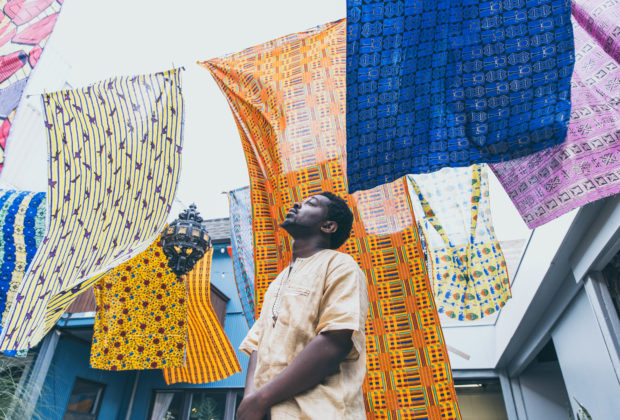
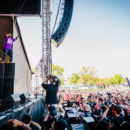
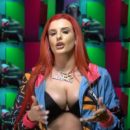
![[Audio] "Winners Never Lose" - Dave East](http://upcominghiphop.net/wp-content/uploads/2015/12/Screen-Shot-2015-12-17-at-11.25.19-AM.png)
![[INTERVIEW + EXCLUSIVE TRACK] Crimdella - Proving That Authentic Rap Can Sound Incredible and That The Underground Is Stronger Than Ever](http://upcominghiphop.net/wp-content/uploads/2016/12/IMG_0829-350x320.jpg)
